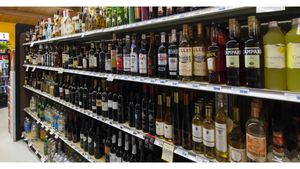DESTINATION: GROWTH
ROCHESTER, N.Y. -- "Our biggest fear as an independent is getting big," concedes Danny Wegman, president of Wegmans Food Markets here. "We're afraid of losing the independent spirit."The 58-store operator is growing its business and planning for expansion -- including an upcoming move into New Jersey -- with caution. Wegmans has become a destination operation in fresh foods and many other categories,
May 3, 1999
DAVID ORGEL
ROCHESTER, N.Y. -- "Our biggest fear as an independent is getting big," concedes Danny Wegman, president of Wegmans Food Markets here. "We're afraid of losing the independent spirit."
The 58-store operator is growing its business and planning for expansion -- including an upcoming move into New Jersey -- with caution. Wegmans has become a destination operation in fresh foods and many other categories, and replicating that success across many additional units is not easy. That's particularly true because Wegmans has a large work force that includes culinary professionals.
The retailer is taking a gradual approach to expansion in order to maintain quality. Long a leader in fresh foods and meals merchandising, Wegmans is increasingly a draw with international foods, private label, natural foods, pet products and numerous other categories.
In an interview, Danny Wegman told SN about his philosophies on making supermarkets into destination draws and discussed the challenges of expansion. "There's not just one answer to becoming a destination operation," Wegman said. "You have to understand your customer. The answer will be different for different people. The reasons people go to two different Wegmans might be different."
Analyzing Wegmans, Jim Riesenburger, managing partner of Riesenburger, Leenhouts & Associates LLC, a consulting firm based in Rochester, said: "There's no question about them being a destination store. It's very much due to Danny's leadership and vision as to where they want to position themselves. One of their secrets is an absolute commitment to programs. Too many companies in the business are looking for instant gratification."
Said Wegman, "You need to be a destination. Each operator needs to be focused on why the customer wants to shop there. I believe there's a strategy for every operator. They just have to find it."
Wegmans has gained that focus across numerous generations of family operation through trial and error. The retailer's roots date to 1915, when Danny's great grandparents ran a small store in Rochester. Their sons launched a full-scale grocery store in the 1920s. Danny's father, Robert, who at 80 is still chairman of the company, became president in 1950 and accelerated the growth of real estate and manufacturing development. Today, with Danny, 52, as president, Wegmans' volume is estimated at close to $2.5 billion, according to trade sources.
The company's real estate is marked by superstores that can exceed 100,000 square feet. The retailer, which has a New York-Pennsylvania base, is slated to enter New Jersey this summer by opening a store of about 97,000 square feet in Princeton.
Riesenburger noted Wegmans won't have the home advantage as it expands into new markets. "As they go farther afield -- and Princeton, N.J., is the farthest for them so far -- distribution will be more of a challenge. But the biggest challenge will be people. Their philosophies can only be effective with good people. The challenges of attracting good people increase in new areas. But I think they have an overall commitment to handling this, and will take some good people from existing areas to create a nucleus for new markets."
Despite being in a new operating region, Wegman is optimistic about his company's ability to draw customers. The retailer is always evolving but didn't have to remake its merchandising approach for a new customer base, he said.
"In many ways, a lot of what we do is already set, and we already know if it will work or won't work," Wegman said. "We now go looking for customers who will be happy with what we know how to do, rather than saying, how are we going to adjust to the customer."
That customer focus enables Wegmans to avoid overthinking about competitors, especially in new markets. "If we do a good job identifying and serving our customers, business will take care of itself," he stressed.
Wegmans, which tends to build a few stores each year, has a second New Jersey unit planned for about a year after the Princeton launch. Some of the work force for the new stores will come from the company's established ones, Wegman said. One theory among industry sources is that Wegmans will eventually head for a launch in Philadelphia. Meanwhile, on its home turf, Wegmans competes with Tops, a unit of Ahold USA, Atlanta. Observers say Tops is particularly focused on the city while Wegmans focuses heavily on the suburbs. Tops can leverage the increasing economies of scale of the growing Ahold organization. But observers point out that Wegmans' reputation continues to be driven by its strong customer service.
One of the most recently opened Wegmans stores is a good example of the retailer's ability to constantly remake itself. A 125,000-square-foot replacement unit opened in Amherst, N.Y., late last year, reportedly western New York's largest supermarket. It reflects much of Wegmans' fresh-foods destination appeal. As reported earlier in SN, that unit sets a new direction for the company that unifies the food-service presentation in its Market Cafe. The new look packs a large variety of items, including hot, ready-to-eat food, in a relatively compact space. The new direction also appears to seek out more lunchtime traffic.
"We've made far more mistakes than anyone else in the food-service business," said Wegman, who avoided discussing specifics of his company's merchandising strategies. "And we continue to make mistakes. There's not just one answer. You can learn from those mistakes. There was no real model out there for us to follow. It's trial and error; it's a different business."
Nevertheless, Wegman said independents like Wegmans have more capacity to pursue innovative prepared-foods programs. "You probably have a longer term vision if you're a private company," he said. "It would be difficult to go through the losses as a public company. You can lose a lot of money real fast in prepared-foods operations. You don't want to do that without a long-term vision."
Wegmans has leveraged private-label strategies with much success, and its approach includes a successful and expanding Italian private-label brand. Wegman views store labels as an extension of the company's overall customer-oriented philosophy.
"I think if the products are available through a brand, that's fine," he said. "If they are not, then we'll develop them ourselves. That's customer focus."
Wegman stressed that customers shop for reasons that go far beyond price. "We get hung up on price in our business, but that curtails innovation because we are mindlessly going down this route," he said. "It shortchanges our customers. As a retailer you lose when someone comes along with a better price and also when you don't satisfy your customer's other needs." But just as important is satisfying the needs of associates, according to the retailer's philosophy. "We are a small operation and we know our people very well and we care about them," Wegman said.
"We're hoping we can continue that," said Wegman in the context of discussing expansion. "You have to show your people you care in your actions every day; how you respect them and treat them."
About the Author
You May Also Like




